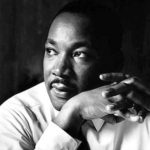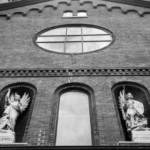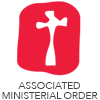Last entry I stated that Dr. Dallas Willard, Dean of Philosophy at University of Southern California (Los Angeles), soundly rejects monasticism (see last entry). Willard believes the monastics (6th c) erred on seeing the body as bad and in need of purification, “mortification” – putting to death the flesh rather than putting to death the deeds of the flesh. According to Dr. Simon Chan the Roman Catholics view sin as “spiritual pollutant” (Spiritual Theology). Even though the Catholics and western Benedictine monks perceive sin as forgiven through the atoning sacrifice of Jesus upon the cross, the issue of continued fleshly sin must be dealt with through spiritual disciplines. As Thomas Merton (Sayings of the Desert Fathers) puts it… “the desert fathers and mothers saw the world as a sinking ship from which one must swim to save one’s life” (my paraphrase).
From my readings of the monastics over the past few years I am not convinced they see the body as evil, but the monks see the body in need of “training” – disciple, like athletes training to compete. I find monastic communities understand well the influence and power of the flesh for spiritual training. Certainly the body is the locus of temptation and sin. But the monks leverage the bodily rhythms of food, manual labor, sleep and then the power of communal chant and the singing of the Psalms to form one into the image of Christ. [And before I press on, let’s just state what we should all understand as “the image of Christ:” we should mean the Virtue of Love, that we should Love g-d with heart, mind, soul and strength; and love our neighbor as our self, which I summarize as “that we should hold no opinion of another,” no judgment, but only to think the best of everyone.] If the early desert hermits got it “wrong” then the institutional monks corrected things and have it right from what I’ve seen.
This leads me to question how Willard understands the function of prayer, particularly the communal prayer of monks – and therefore those of us who gather for the Daily Office using the Celtic Daily Prayer Book or the Grail Psalter.
Several years ago while reading Thomas Merton’s Seven Storey Mountain, though never stated or explained, I thought Merton perceived the Divine Hours – the daily schedule of singing prayer and reading the scriptures – as more effective in fighting the Nazis than folding parachutes or firing upon the enemy with a rifle. I did NOT think that Merton was saying ‘we need to cajole or coerce the Almighty into doing our bidding’ (though petitionary prayer is certainly a huge part of prayer). I felt (and that probably is the right verb – “felt”) I felt Merton thought of the Trappist’s prayers as “participating” in actions of g-d.
From my limited knowledge of Catholic theology and spirituality, are the monks’ prayers then more like contributing to a “treasury of Prayer?” Could be. Obviously g-d knew about the atrocities of war (WWII). Then why were the monks praying? Does g-d need to be pitched and wooed like some cheap capricious Greek god or goddess? No. More accurate, g-d is waiting upon us to catch up. As I continue to remind us… I think g-d is younger than us, I think g-d has more energy than us, happier than us, crackling with newness and creativity. G-d is constantly looking over his shoulder, waving to us to catch up to where he is, like a child running towards a playground, up to a mountain top, rushing towards an Alpine stream to jump in and splash around… and g-d has sword drawn rushing and yelling towards the darkness, leading us into the battle confident of victory. I think our best prayers are the prayers g-d is giving to us. This is aptly called “seeking g-d.” Willard: “watching or vigil.” (p152)
Additionally, I have a hunch Willard is down on monks because he doesn’t believe they are living in the “real world.” And yet what do we ask of real “real world” Christian salespersons, accountants and machine operators: “Bring the presence of Christ into your work place.” The monks deal will all the same sins as salesmen (just talk to them!) Let’s not fall into thinking that there is actually a MORE holy world than the real world – as though construction workers are more holy than monks because they face greater temptations – what?! Each one has a calling, each one a measure of faith.
Now I’ve talked with Dr. Willard. This is my one claim to fame. He is a wonderful man. When I asked him what he was thinking about he said, “The church.” He said those two words with all the depth of the ocean. So I know Willard is thinking about the church all the time. Still, I believe when Willard writes (Spirit of the Disciplines) readers only hear a voice telling them “the spiritual life is an individual effort – get into spiritual shape – exercise by yourself!” I can’t help but remember that Willard is Brethren, from the Radical Reformers, who repudiated human authority and institution (read, ‘we are suspect of monks’). For centuries the church’s metaphor was that of a galley ship; each of us has an oar, and each is dependent upon the other – not individuals training for a marathon.
With this implied individualism no wonder Willard calls for “the church” to center its spiritual practices around scripture memorization. Man, I’ve heard that for many a years from my Evangelical upbringing. And of course memorization is extremely important. But is it a private effort? I think memorization would happen better if it were done in community – not “memorized” but “exercised.” The monks after years of singing the Psalms each month must KNOW the Psalms and other passages. They simply must – how could they not know them? That, folks, is Scripture memorization – praying the Psalms in community. Praying alongside the Holy Spirit, following in the Spirit’s shadow (how does pure Light cast a shadow? uh…) If Willard wants us to memorize the Scriptures then why not form communities within the church of Scripture singers, Scripture breathers? I hear the 119th Psalm starting up!
I believe Willard owes more credit to the monks’ spirituality. He picks out the worst of them and assumes the best of the modern individual private Evangelical. I’ll take a monk over someone like me any day of the week. What the church MUST DO is pursue small “Orders” of vocational pray-ers within the church, for the church, alongside the church. We need to bring back the monastic movement to the Protestant Reformation. Luther did away with it. He might have been right at the time (16th c). But these days I am convinced the potential abuses of the monks (like excessive bodily mortification) are worth risking if we can gain Love – Love for g-d and Love for neighbor. This vocational prayer is the church’s most powerful center – and it is missing within Protestantism (see my earlier entry about “Rethinking the Priesthood of All Believers,” 12/23/09).
Read Willard. Dr. Willard is so needed today. I think he would even be more useful to us all if he unleashed the power of vocational pray-ers.
PS: Dr. Willard, you said you were thinking about writing a pamphlet about “how to go to church.” If you haven’t done it yet, please please do. We need your voice, I need your voice. Thank you.







